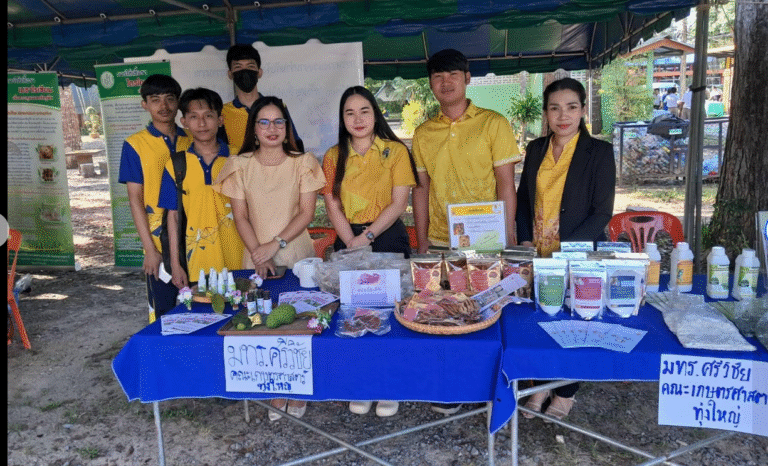Reporters: Asst.Prof.Dr. Prapot Maliwan
Assoc.Prof.Dr. Pornsil Seephueak
Asst.Prof.Dr. Nion Chirapongsathonkul
Asst.Prof.Dr. Worawitoo Meesook
Evidence Date: during 2023 Jan-Dec
Related SDGs:
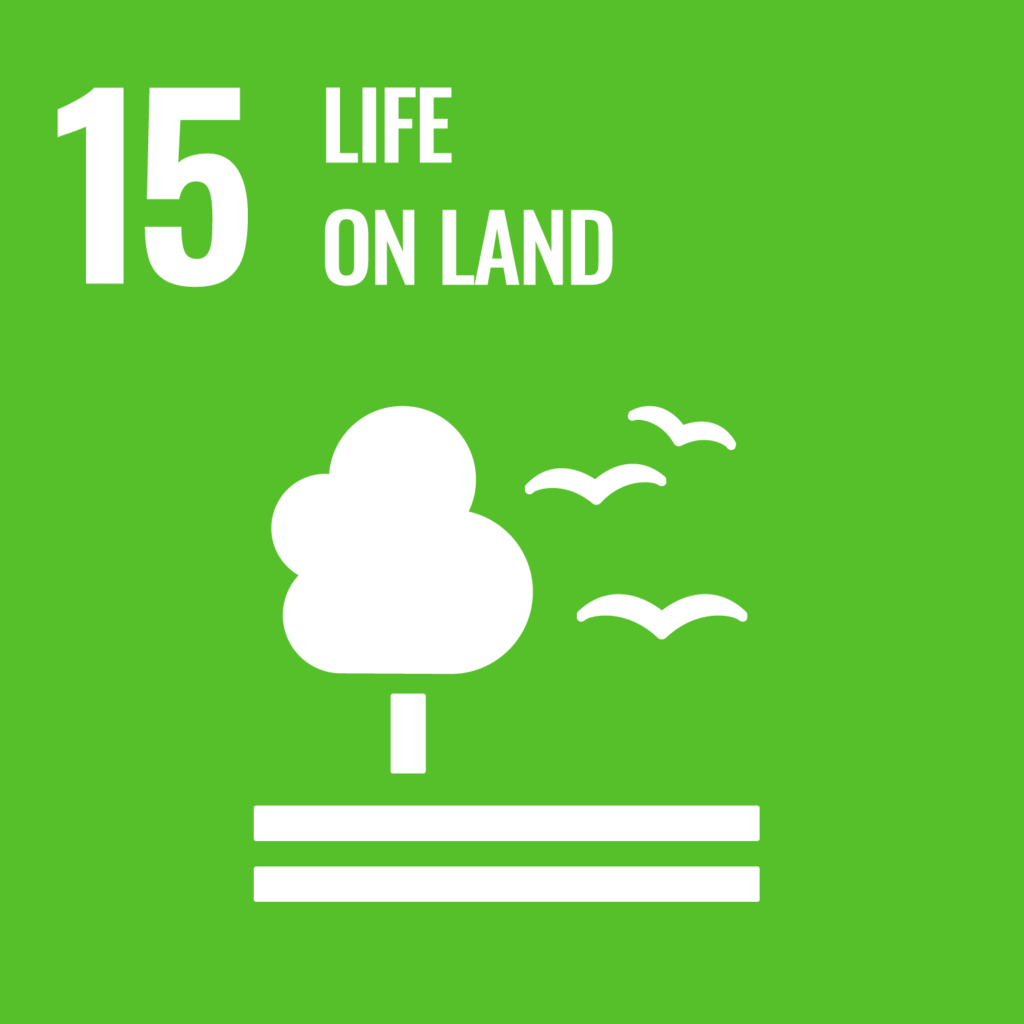
Related Indicators: 15.2.3
Details:
The Faculty of Science and Technology at Rajamangala University of Technology Srivijaya organized a comprehensive training program titled “Help the Snakes for Ecological Balance” from May 4 to 5, 2023. This event was held at the PhuPhat Meeting Room within Betong Hospital, located in Yala Province. The setting was chosen not only for its accessibility but also because Yala is an area rich in biodiversity, where encounters between humans and wildlife, especially snakes, are relatively common. The program attracted a wide variety of participants, all of whom are involved in roles where they may encounter snakes in their daily work. The opening ceremony was presided over by Mr. Ake Yangaphai Na Songkhla, the District Chief of Betong, Yala Province, who expressed his support for the program and emphasized the importance of community involvement in wildlife conservation. He also highlighted the vital ecological role that snakes play in maintaining balance in the environment, especially in controlling rodent populations. His remarks set the tone for the training, which aimed to shift the perception of snakes from dangerous pests to crucial components of the ecosystem. The event was designed not only to impart knowledge but also to foster a more positive and informed attitude toward snake conservation. By understanding the ecological value of snakes, participants were encouraged to see them as allies in environmental management rather than threats to human safety. Overall, the program aimed to equip local professionals with both the awareness and skills necessary to handle snake-related situations safely and responsibly.
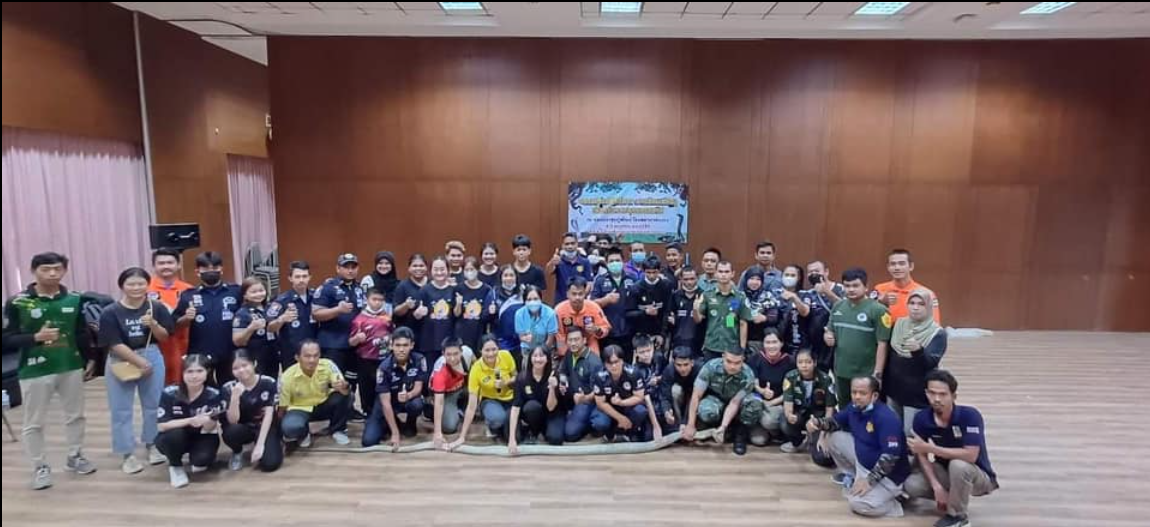
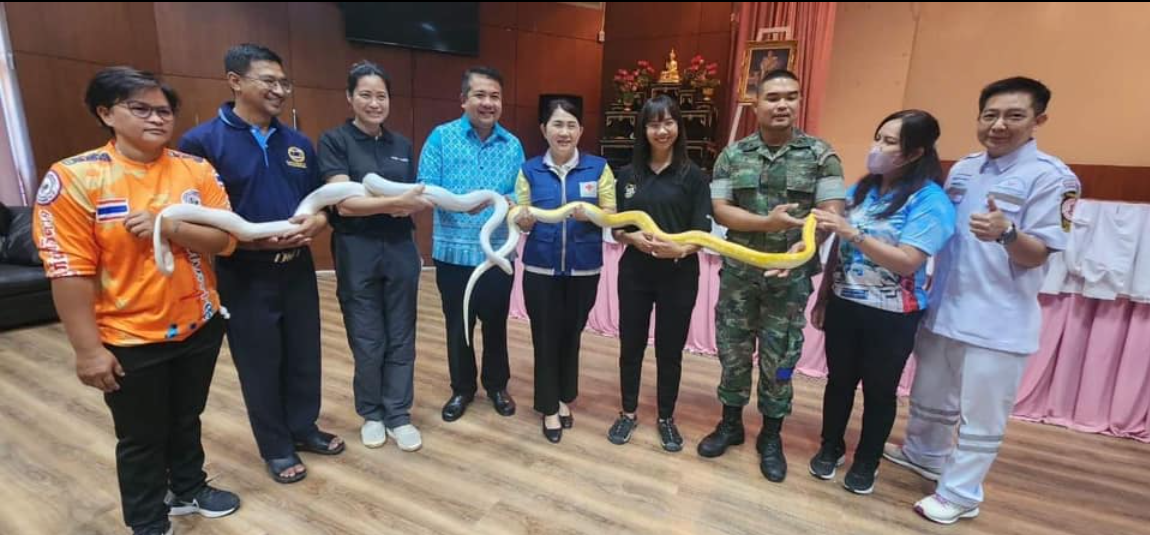
The participants were primarily composed of individuals from rescue organizations, fire departments, public safety services, and hospital staff, all of whom have critical roles in responding to emergencies involving snakes. Each of these groups plays a unique part in ensuring public safety, especially in rural areas where human-wildlife encounters are more frequent. The course was structured around several key topics, with an emphasis on practical knowledge and skills. Participants first learned about snake identification, focusing on how to differentiate between venomous and non-venomous species, a critical skill that can help mitigate fear and enable appropriate responses. Another significant topic was snake venom, with detailed discussions about the types of venom, their effects on the human body, and the medical implications of snakebites. This knowledge was essential for the hospital staff in particular, who are often the first to treat snakebite victims. The course also included training on administering first aid to snakebite victims, which can be crucial in life-threatening situations. Participants practiced techniques such as applying pressure bandages and immobilizing limbs to slow the spread of venom while awaiting medical assistance. In addition to these medical aspects, the training covered methods for safely relocating snakes, emphasizing humane handling techniques that prevent harm to both the snakes and the people involved. By the end of the course, participants were not only more knowledgeable but also better equipped to manage snake-related emergencies in a way that protects human health and preserves wildlife.
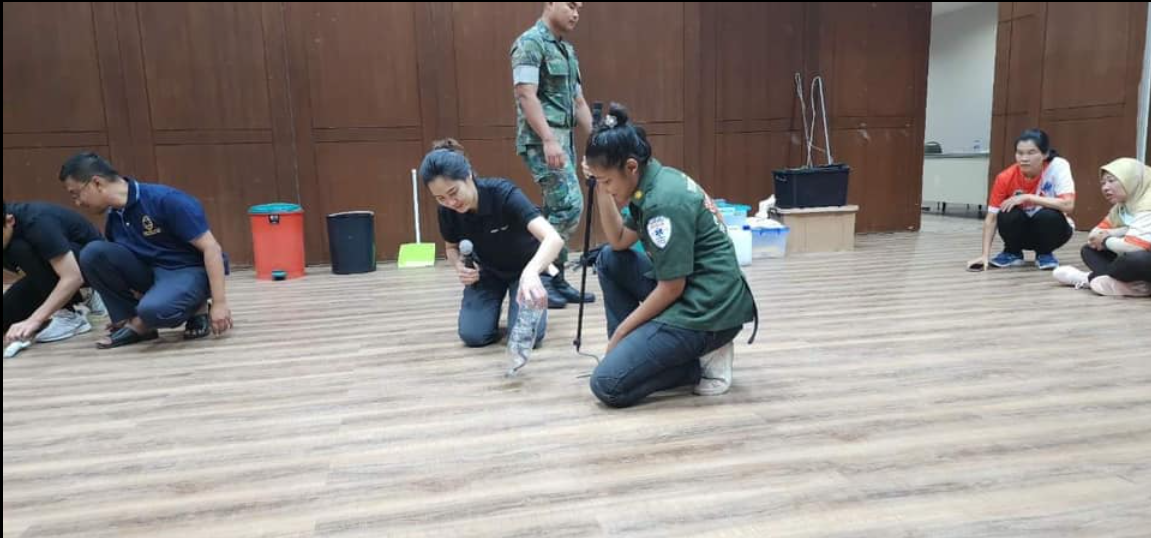
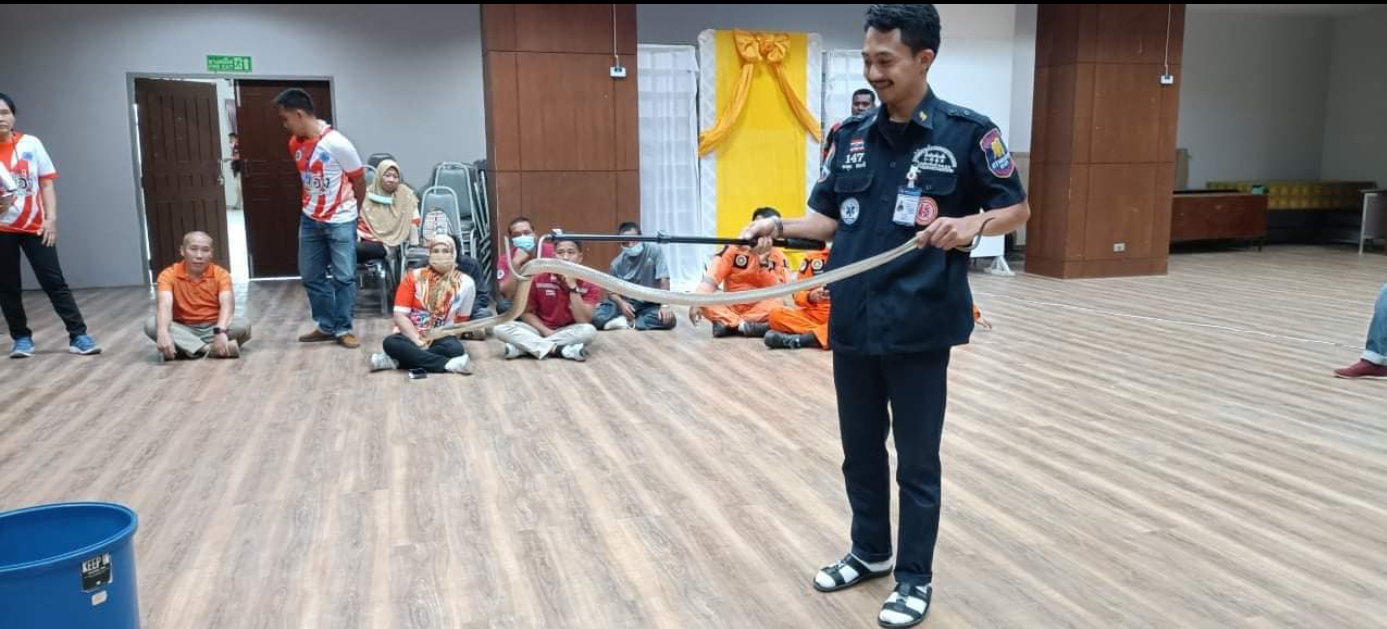
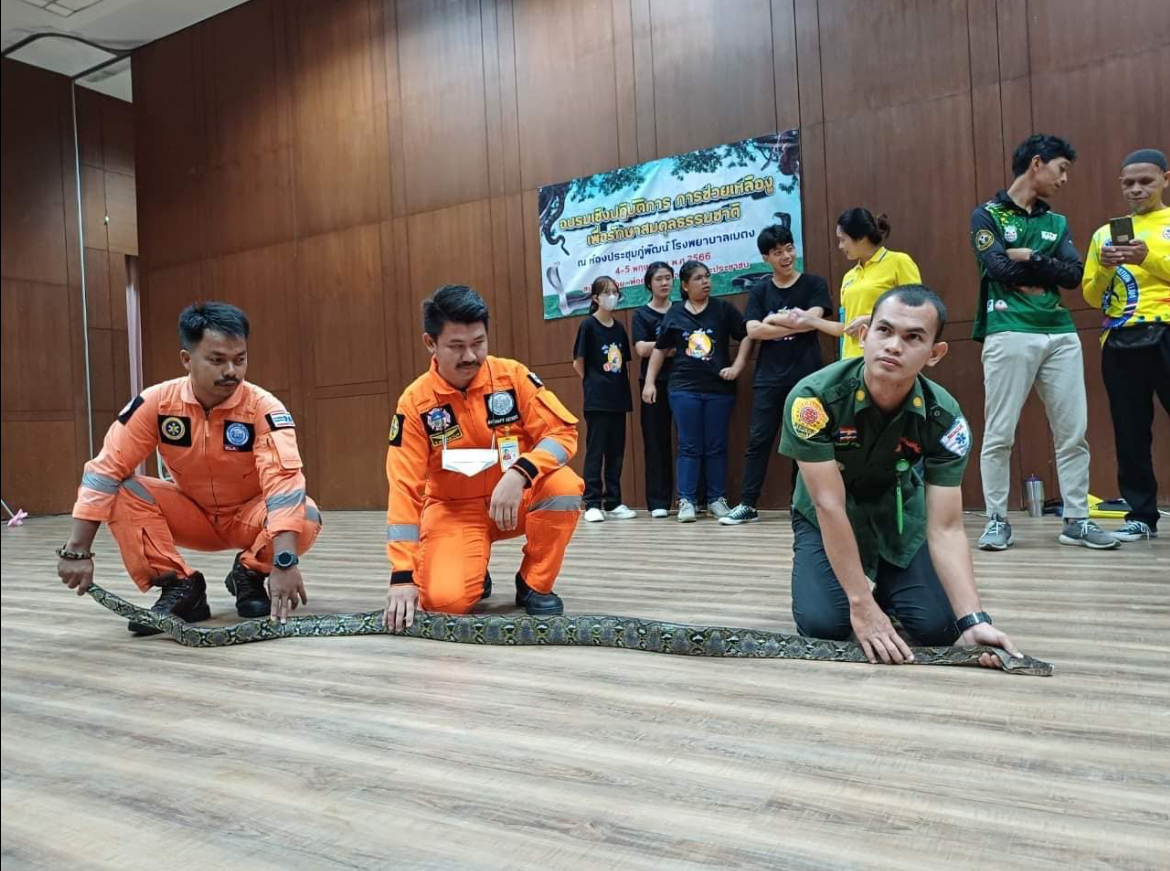
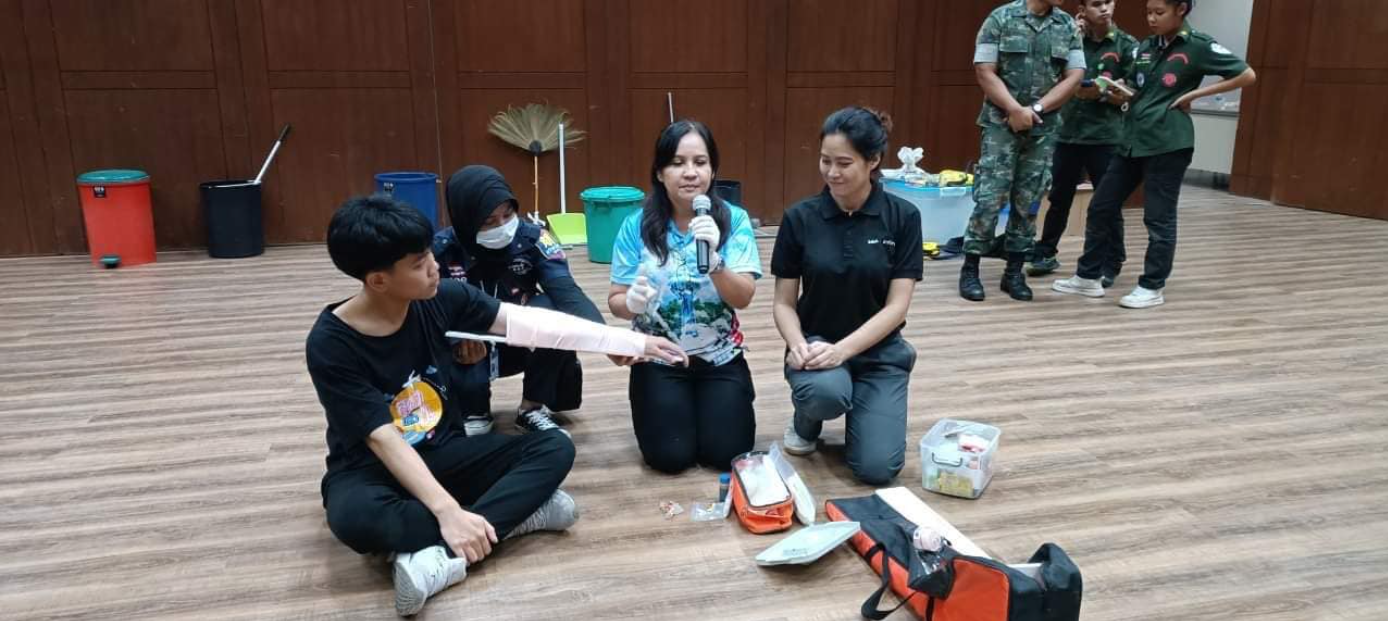
The training program was led by Asst. Prof. Dr. Worawitoo Meesook, a lecturer at the Faculty of Science and Technology at Rajamangala University of Technology Srivijaya, who brought her extensive expertise in environmental science to the project. Her leadership ensured that the program was both scientifically grounded and practically oriented. Supporting her was a team of highly qualified instructors, including Mr. Montri Sumontha from the Department of Fisheries, an expert in reptile taxonomy, whose deep knowledge of snake species added valuable insights into the identification and ecological significance of various snakes. Another key instructor was Dr. Nattasuda Donbundit, who has conducted extensive research on snake chromosomes for her thesis and provided a more detailed understanding of the biological and genetic aspects of snakes. Additionally, Sergeant Major First Class Thanaphat Parteep Na Talang, who serves as a snake education trainer for soldiers in the southern part of Thailand, contributed his practical experience in snake safety and handling techniques.
Together, this diverse group of experts offered a well-rounded and comprehensive training experience. They combined scientific knowledge with practical skills, allowing participants to engage with the material in a meaningful way. The instructors also facilitated hands-on activities, where participants could practice the techniques they had learned in a controlled environment, further solidifying their understanding. This blend of theoretical and practical training ensured that participants not only gained essential knowledge but also felt confident in applying what they had learned in real-world situations. The collaboration between the academic, scientific, and public service sectors was a key strength of the program, making it a model for future training initiatives focused on wildlife conservation and public safety.
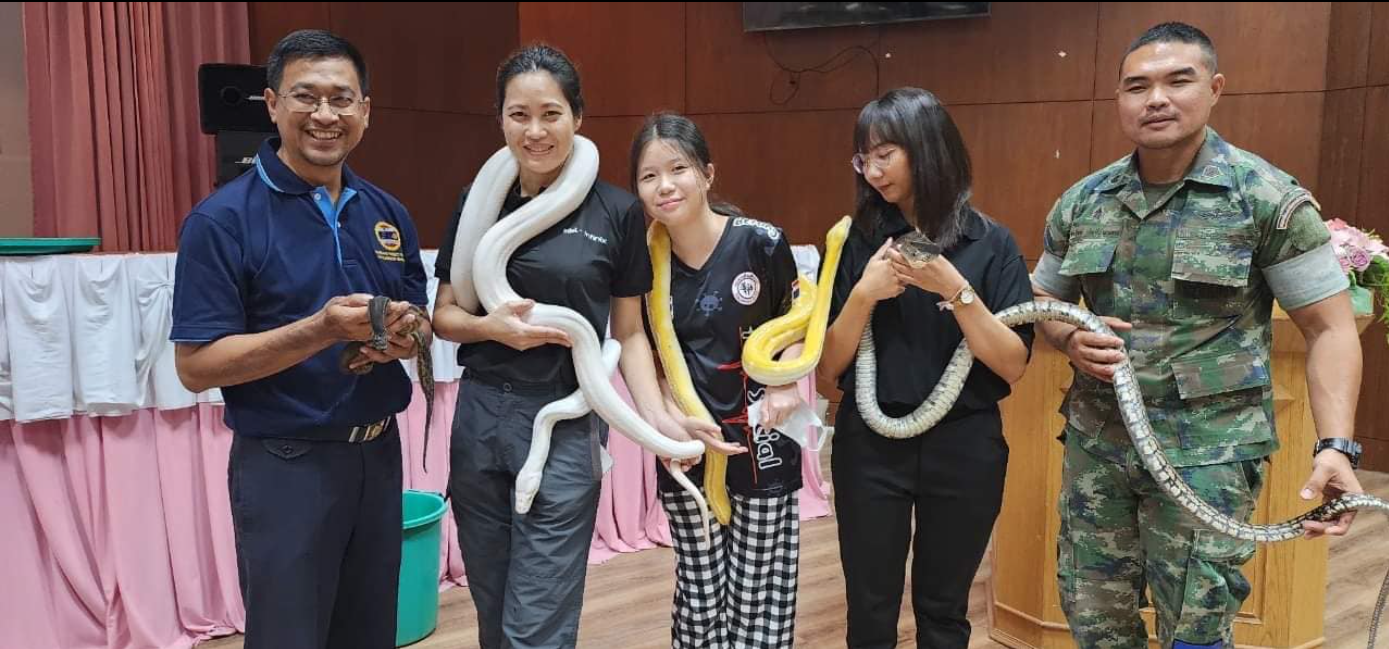
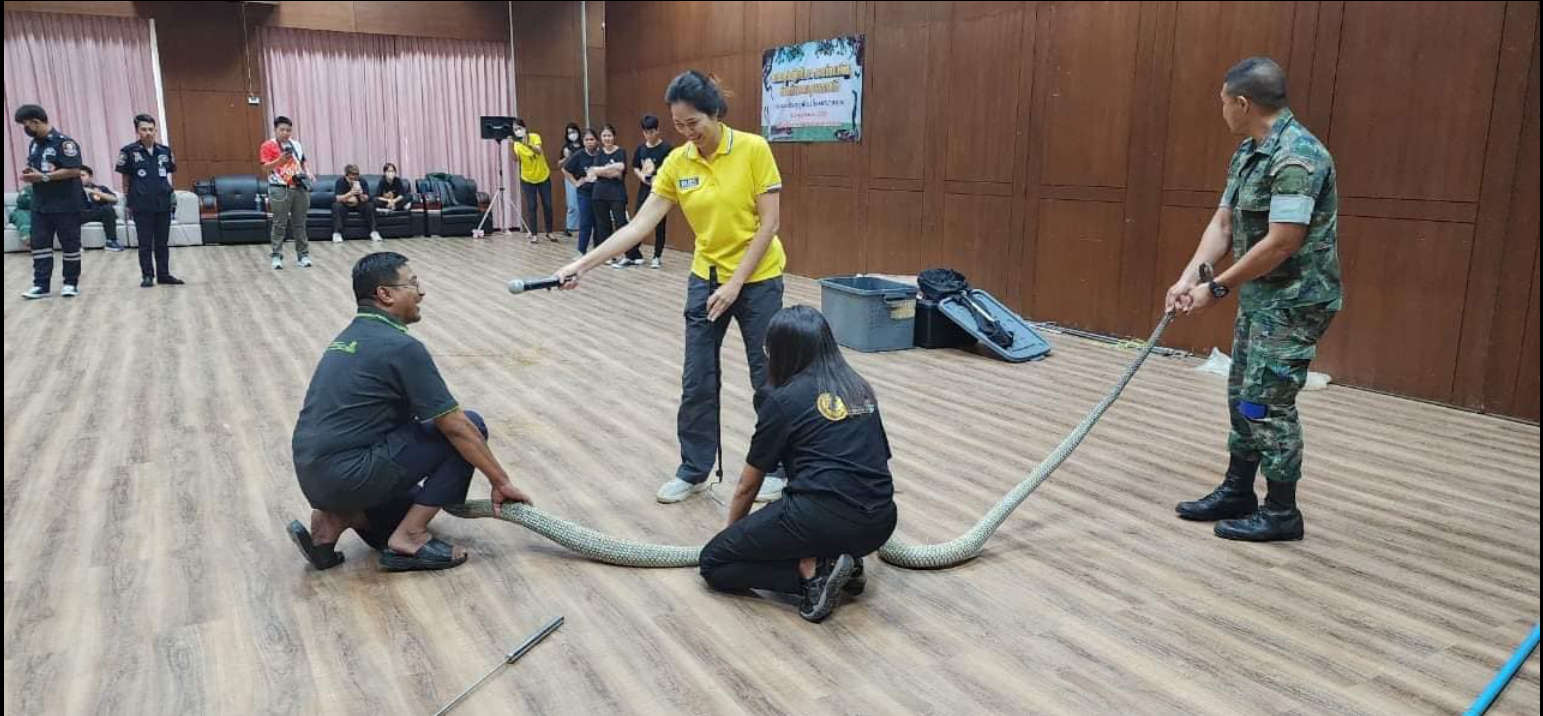
https://www.facebook.com/watch/?v=194290193065964
https://www.facebook.com/reel/991043082055292
https://www.facebook.com/watch/?v=194290193065964
https://www.facebook.com/reel/254337713819680
https://www.facebook.com/namwan.worawitoo.7/videos/783400003189884
https://www.facebook.com/pueng.narak.39/posts/pfbid0ydA4q9dCQ1U33dsQmzL58rN9DtwYNZ3gq1H1uK5mCcqyXiShKgae4KpqxrEbqHZJl
https://www.facebook.com/thanaphat.phathreepnathanlang/posts/pfbid02yxpAGQaU52CwfmzA9Ajb15zugoDskNvMG8V9UJ2q2MStec2vnrS7mQcEg3DB9c4Al



